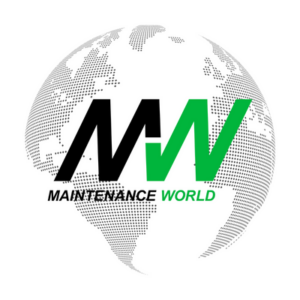World Standard Maintenance Skills through Assessment and Multi-Skilling
Howard A. Mayer and Ivan G. Somlai, The University College of Cariboo
What makes the difference between success and failure in meeting maintenance task deadlines? How can equipment reliability and maintenance task completion times be improved? These and other maintenance related questions can be answered by the UCC International’s Skills Assessment and Multi-skilling approach to maintenance training. Certified Trades and Technical staff at the University College of the Cariboo have developed a process by which maintenance supervisors and decision makers can adequately address maintenance skills weaknesses within their organization. An integral part of the skills assessment process includes the concept of multi-skilling enabling related trades to perform “full assists” to their counterpart tradespeople.
Structured Maintenance Skills Training
This unique and effective process was developed as a four pronged approach to the development and implementation of structured maintenance skills training.
- Written Theory Assessment
Each potential trainee is required to write a comprehensive theory assessment related to their area of work. The results of the assessment are then measured against international standards and graphed to indicate where significant skills gaps exist. These graphs are provided to maintenance decision makers in order for them to more readily decide on a plan of training action. - Personal Interviews
Personal interviews are conducted with each of the technicians to determine where in the plant they performed the majority of their work, their perception of the skills necessary to perform competently in their occupation, and their willingness to engage in training activities in order to increase and expand their practical competence. In addition, technicians are asked to provide a snapshot of any areas of expertise they have a particular interest in developing additional skills in. - On-site Work Audit
All plant process areas are visited on the practical skills audit. During the audits, technicians are requested to explain their respective area processes and the role they play in the day to day operation and maintenance of the equipment. Walk-arounds in the various areas together with the maintenance technicians enable the UCC staff member to perform cursory inspections of the equipment and to discuss proper preventive and regularized maintenance procedures. - Resource Inventory Review
As the final step in preparation for maintenance skills training activity, UCC staff review with the maintenance supervisors and decision makers, the equipment, resources and facilities required should maintenance skills training programs go ahead. To ensure success in the training programs, sufficient numbers of specialized equipment, supplies and training spaces are required.
Training programs developed under the guidelines of the above process also incorporate the concept of multi-skilling. This process is modernistic in that it promotes and enables maintenance staff in the future, to step outside of traditional trade bounds and practice full assist when engaged in a multi-faceted maintenance procedure.
When the decision is made to proceed with maintenance skills training programs, UCC International strongly recommends that maintenance supervisors be provided with a mini-seminar enabling them to gain an overview of the theory and practical training curriculum that will be included in the various maintenance skills training programs. This is essential in ensuring that all stakeholders in the ensuing upgrading are familiar with the content and process, thus minimizing the chances of jealousies or hard feelings in teams that have some members better updated than others.
Conclusion
UCC International has been engaged internationally for well over 15 years. Taking hints from 30 years of experience in our trades teaching and consulting practice in Canada, UCC International has blended that domestic expertise together with our international/interdisciplinary experience in South America, the Caribbean and Asia. Our demonstrated results with staff that are not only technically proficient but who are trained instructors, interculturally sensitive and professionally respected, are aimed at improving a company’s ‘bottom line’ through less downtime, better preventive maintenance and increased pride in workmanship.
Related Articles

How to Fix the 70/30 Phenomenon

Zen and the Art of Managing Maintenance

Why do maintenance improvement initiatives fail to deliver? (Hedgehog or Fox?)

Why Maintenance Improvement Efforts Fail

TPM and RCM: Whirled Class

Where Do Maintenance Professionals Come From?




